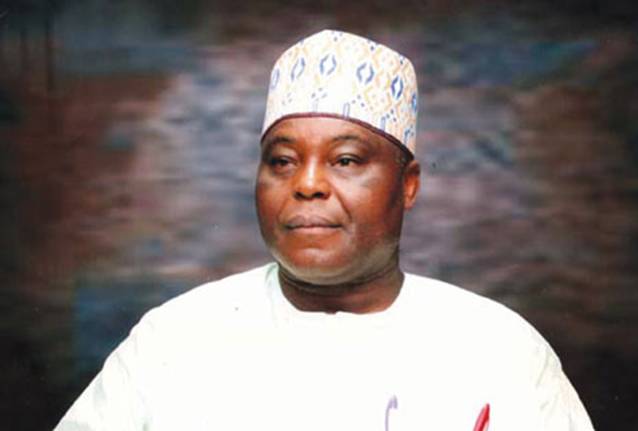Specificity is the most suitable honorific that one can allocate to the Minister of Information and National Orientation, Mohammed Idris Malagi, who at a maiden event for him in Abuja, said he was a reporter reporting for duty in an industry where he has operated for nearly three decades. Meaning he has enough experience in his seams to reposition the Information sector as he has promised. And the workers in his ministry would want him to do exactly that as that area has been so forsaken and degraded that they need something close to a miracle to return to life, literally.
I promise to be specific in telling my story and relating that story to the challenges that would confront the Minister in the Information Ministry. I grew up at a time the Nigerian Television Authority (NTA) was the king of the broadcast industry, presiding over and providing what it wanted people to hear, and dictating and deciding who should participate in content production and development.
I worked in the newsroom when the news editor would set up a team to monitor the NTA 9pm Network News, which was a must, as it was the only voice of government at the time, and another team to deal with Radio Nigeria and process NAN bulletin. You may call that the age of the dodos but tasks were set aside for government agencies and workers must do their work with commitment while applying requisite knowledge.
The NTA was vibrant and strong, and readily acquired the payoff line of ‘’the biggest network in Africa.’’ There was no formal contest for such position or assumption. NAN was strong and was able to bring news from different parts of the world and so was Radio Nigeria which would feature government news from the federal to states and local councils. One can really say with impish retrospection now that government really worked at the time.
The evolution of the satellite dish came to demystify or, for search of a better word, diversify the sources of news in the newsroom; but the trio of NTA, Radio Nigeria and NAN remained resolute, warding off the brazen incursion of modernity instead of taking the more conciliatory steps of adaptation to new tech trends, or climbing down their high horses to learn a little bit about what awaits them in future.
Private broadcasting came in 1992. The pioneer owners came with such rambunctiousness, that after a momentary feeling of they-will-soon-fizzle-out, the government channels yielded grounds for easy conquest and faced nearly an inexplicable obliteration from the airwaves. More opportunities were missed.
A new Minister has come with the promise to reposition the Information and Orientation Ministry; unfortunately, this is not the era of a Tony Momoh or Prof Jerry Gana, when the Ministry had better attitude for, and resistance to competition with facilities which even at the time were receding into antiquity. This is the age of Malagi. This writer will be specific in saying a few things.
I will look at a few agencies under the Minister and, in doing so, I want to be specific in looking at things in ways not too flattering. I will start with the NTA, the oldest television station in Nigeria, which has since receded into the unenviable status of an industry Lilliputian. The picture that comes to mind ingloriously is the picture of that young lady reading news, Iroyin Yoruba, on NTA, Ibadan; the entire set just came down on her head. Only God prevented a fatality. If you put your memory to good use, television broadcasting entered Africa through Ibadan, under the political wizardry of Chief Obafemi Awolowo, and over six decades later, the station still depends on planks and canvass to build a broadcast set.
This is the kind of ugly situation the Minister will meet at NTA. The Ibadan fiasco is only emblematic of the rot enveloping all the NTA stations across the country. Still relying on funds from government and patronage from politicians without vision, the NTA remains a hovel of poorly motivated workers who shouldn’t have a place in a modern broadcasting industry. And they do not.
For what should be a country’s frontline broadcaster, NTA is too antiquated for modern operations. In a world of digital broadcasting, the station is so ill equipped for modern operations in terms of equipment and personnel and it is no surprise that it has virtually lost out in all ramifications to private broadcasters. While a number of stations in the country rely on cyber sets, including expansive video walls, with a full range of digital equipment, the NTA still remains on analogue equipment and sends out dark and funny looking pictures to people who are still unfortunate to watch the channel.
The NTA is expected to sell government projects which it cannot. Reason being that NTA is dead in ideas, in originality, in concept and creativity. The station that once boasted of The Village Headmaster, Hotel de Jordan, New Masquerade, Icheoku, Cockcrow at Dawn, The Sam Akpabot Show, Bala Miller Show, Morning Ride and other flagship programming has simply gone quiet in the creative front. The 9pm prime time belt has gone to other stations because of the ineptitude and complacency of those saddled with the responsibility of leading the station. It is the responsibility of the Minister to purge the entire system, make new investment in equipment and training of personnel to give the station a new lease of life. There may be the need for new recruitment to achieve some standard in personnel and competition.
I am not about to say that the Minister is inheriting a number of dead institutions as he joins a new government struggling at doing things. Let me here list some organisations that have since lost relevance and moving far away from reality. They include the News Agency of Nigeria (NAN), Voice of (VON) and the Federal Radio Corporation of Nigeria (FRCN). The National Orientation Agency (NOA) comes with its own bucket of concerns. But nobody remembers that, apart from having the capacity to be heard all over the nation, FRCN also has a chain of 36 FM stations across the federation that is scarcely heard. I hardly see newspapers quote NAN, or take news from Voice of Nigeria or FRCN. Poor leadership, inability to respond to the calls of new technologies and inadequate funding have robbed the government agencies of verve and clarity of vision. The country is in all kinds of trouble with the best of our young men and women fleeing from the land in the ignoble japa syndrome, and we cannot see the bravura of an Andrew checking out of Nigeria in a message that resonated across the country because the National Orientation Agency is disoriented both in leadership and concept.
However, one of my most immediate concerns is the National Broadcasting Commission (NBC). The body set up in 1992 by the military administration of Gen. Ibrahim Babangida to regulate broadcasting and, indeed started so well by introducing private stations, has variously been abused by succeeding Ministers into impotence, to the extent that it was shaved of some of its vital functions by the gluttony of such Ministers.
Under Dr Tom Adaba, the pioneer Director General and successor, Mallam Danladi Bako, the NBC recruited professionals from diverse backgrounds, who were prepared to be schooled in broadcast regulation. They quickly cut their teeth and proceeded to establish the foundations of one of the most robust deregulated broadcast environments in the continent. Their efforts immediately flowered in a multiplicity of stations across the nation. Other countries came to Nigeria for peer experiences and they looked forward to Africast – Conference and Exhibition that was held every two years in Nigeria.
Like a curse, good things don’t last in this nation. NBC was slowly taken down by Ministers who turned themselves into regulators and denied the institution of funds that should grease the efficiency of the agency. Licensing became politicized and, like other agencies, employment was ethnicized with attendant consequences.
The NBC started to fail in its responsibilities and commitments. For instance, the Digital Switchover (DSO) which is sanctioned by the ITU to enable countries embrace digital broadcasting and vacate some frequencies for telecom activities, has left Nigeria behind, embarrassingly. The Minister should call for the documents on DSO and reactivate them for immediate implementation in order to save the nation from international opprobrium.
The NBC needs help and so are the other agencies in the ministry. Even selfishly, I would advise the Minister to release oxygen into the agencies in order to make his assignment easy.


